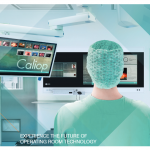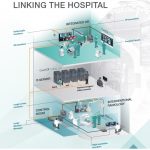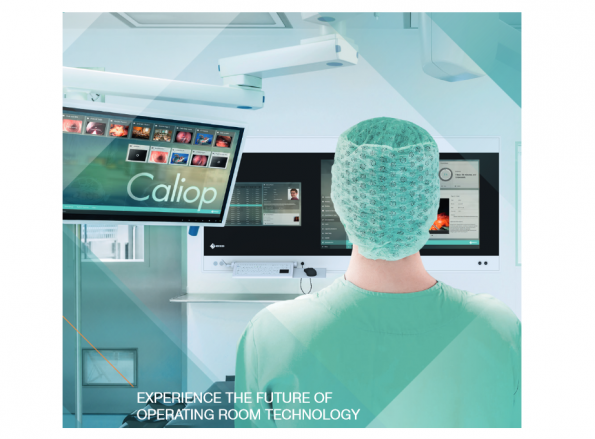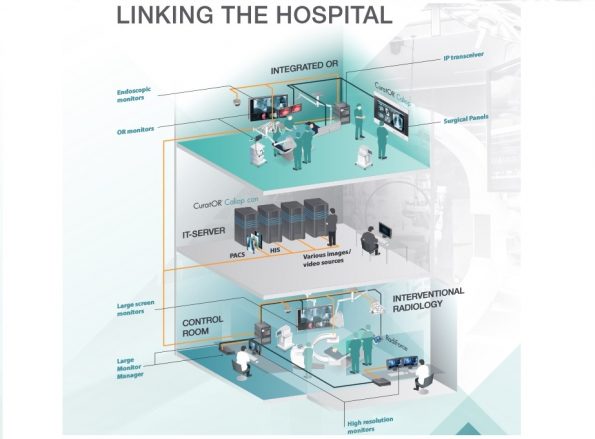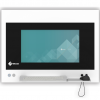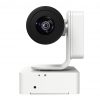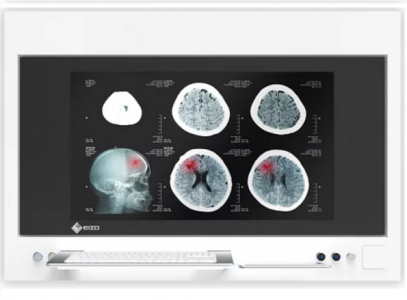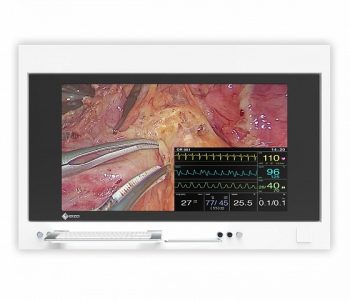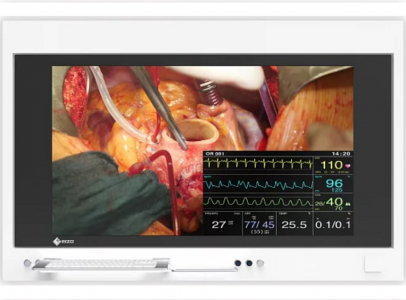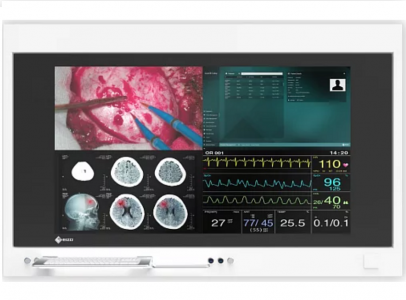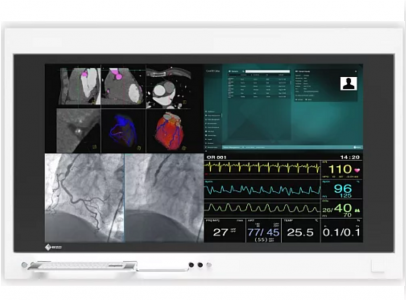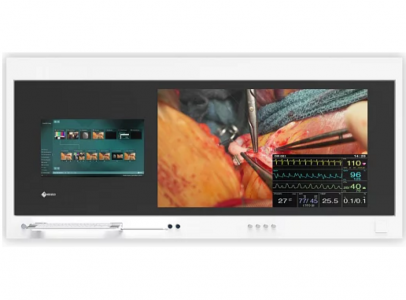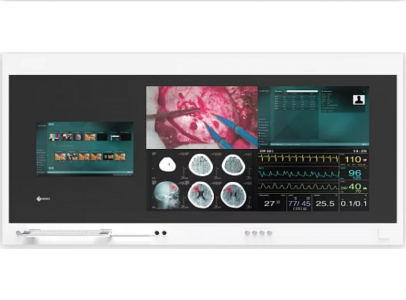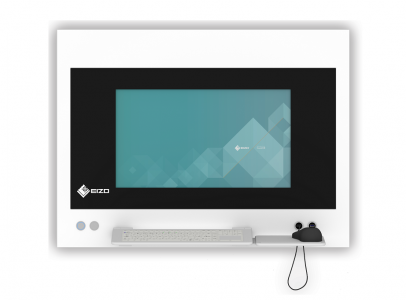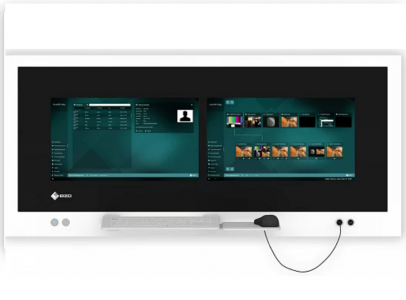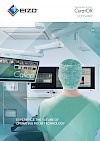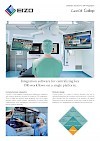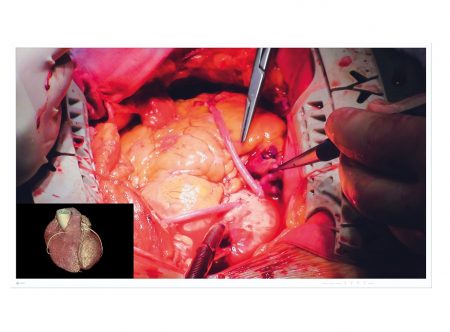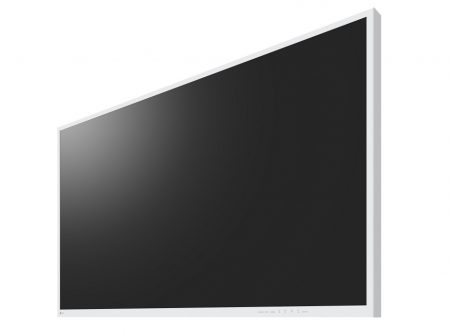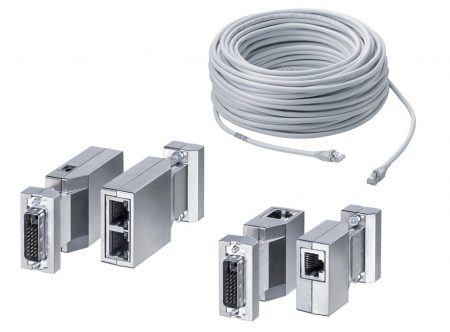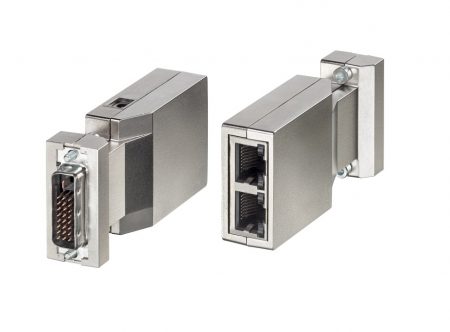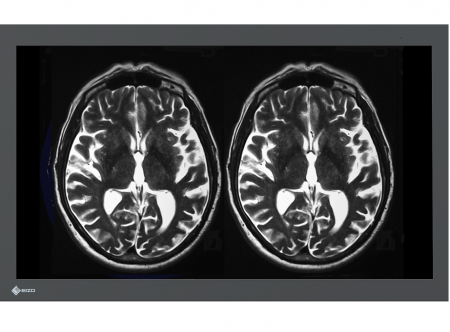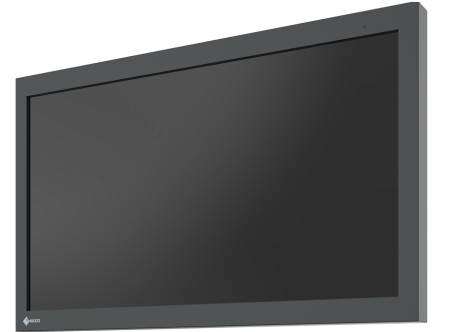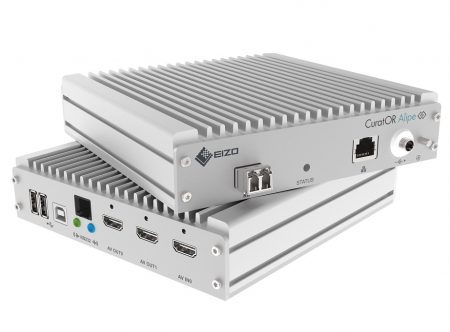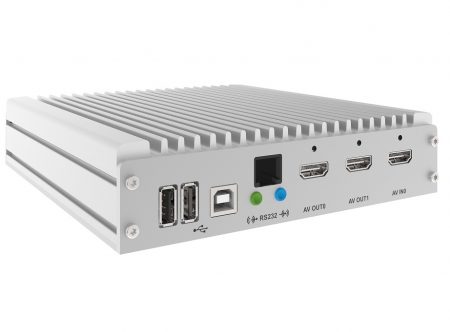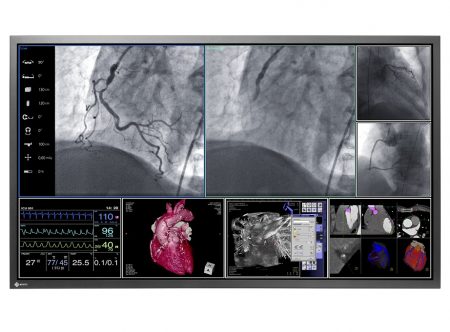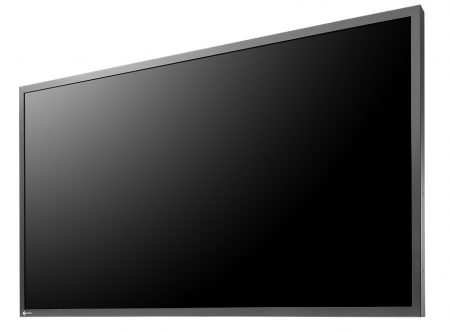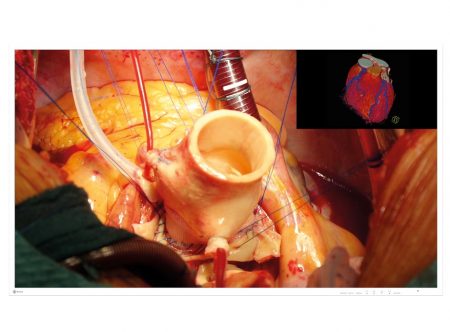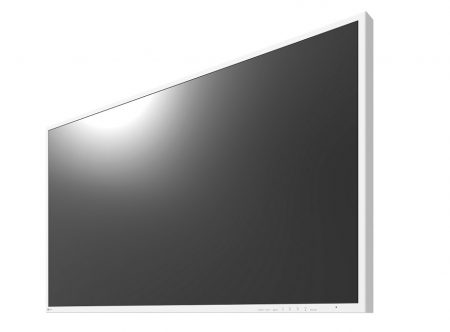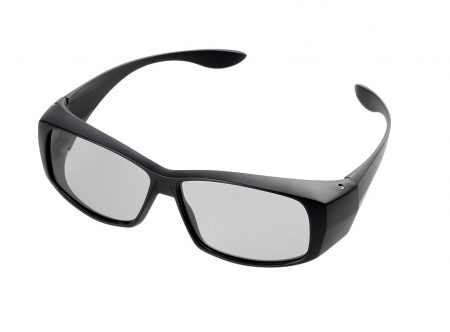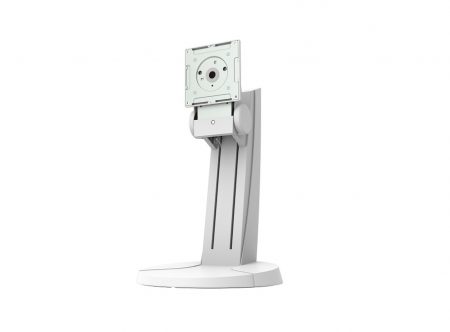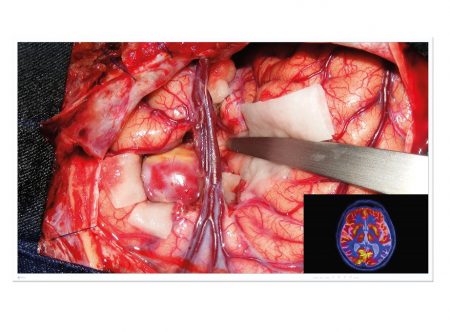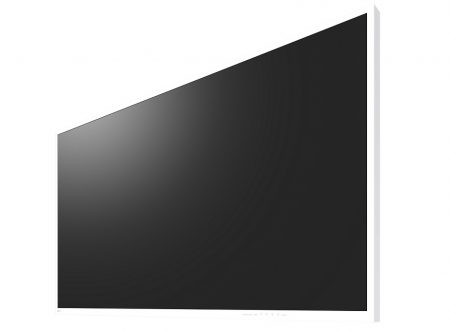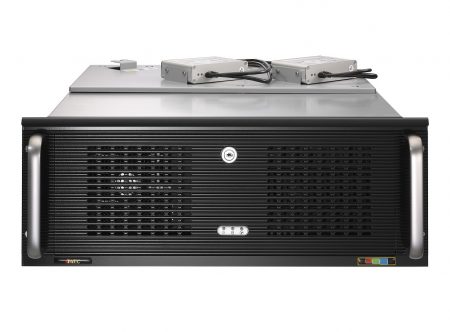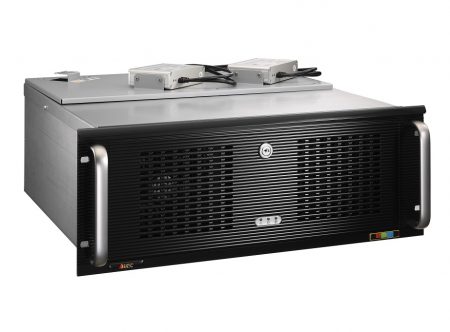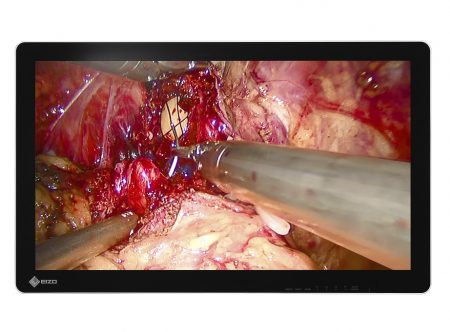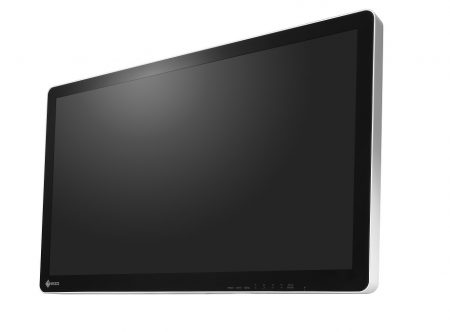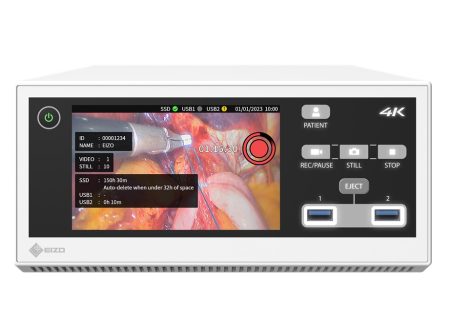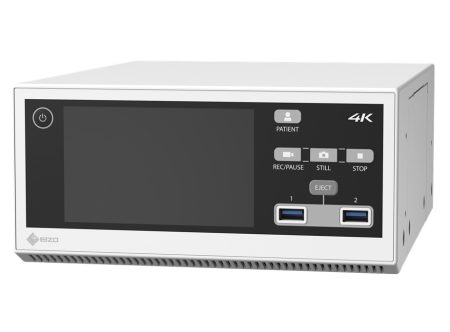ΚΑΛΕΣΤΕ ΜΑΣ ΣΤΟ 210-8072800
CuratOR Caliop
CuratOR Caliop
The constantly growing number of medical devices and equipment used in the OR is a major challenge for OR and nursing staff. This is because, even in stressful situations, they have to be able to operate the equipment without making an error. Different user interfaces and systems that are not compatible with one another sometimes force the OR team into using awkward workflows.
With CuratOR Caliop, EIZO has developed an integration software that centralizes key OR-workflows on a single platform.
- Simple and intuitive menu navigation
- Manufacturer-independent integration
- Designed for use with mouse and touchscreen as well as remotely (foot switch / endoscope head buttons)
- Only one user interface is necessary
- Modules can be added on and additional elements can be purchased later
- Saves time and money
- Uncomplicated administration
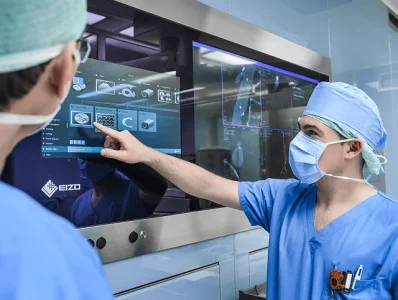
Comprehensive Integration
CuratOR Caliop supports manufacturer-indepentent integration and seamless interaction between the connected OR-components. With its simple and intuitive menu navigation, they can be easily operated from a central location. Additionally, the system offers comprehensive video management functionality and facilitates precise workflow planning.
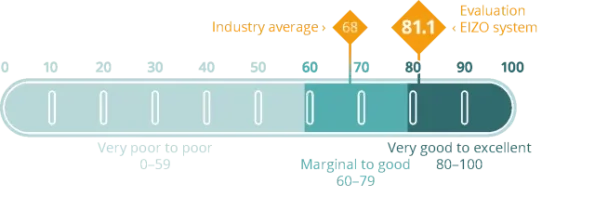
Verified Usability
The intuitive operation and user-friendliness of the Caliop software achieved an SUS-Score of 81.1 out 100 possible points, representing „very good“ to „excellent“ usability.
• 96% of the experts had a positive overall impression of the system
• 100% of subjects found the system easy to learn
• 100% of the experts felt confident working with the system
• 40% reduction in task performance time after only one usage
More details on the study: White paper (pdf)
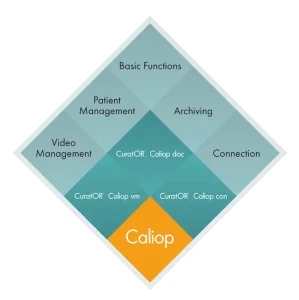
Modular Design
CuratOR Caliop consists of a range of software elements that can be individually purchased in accordance with local needs. Collectively, these elements form the foundation of the modules, the locigal function blocks of the software. This means, Caliop can be easily adapted to respective requirements on site and expanded at a later date if necessary.
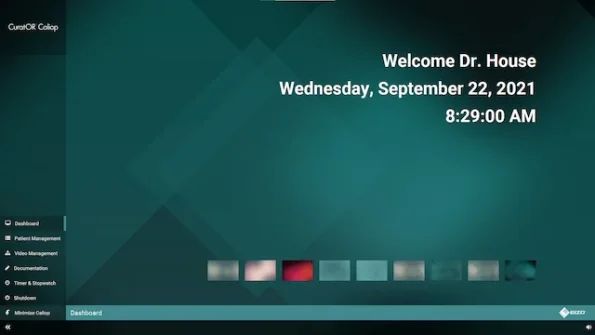
Basic Functions
Irrespective of the locally installed elements, Caliop supports OR-workflows with a range of basic functions such as a configurable dashboard, stopwatches and timers, and display of running processes with their respective status. The design for the Caliop user interface can be individually selected in the dashboard.
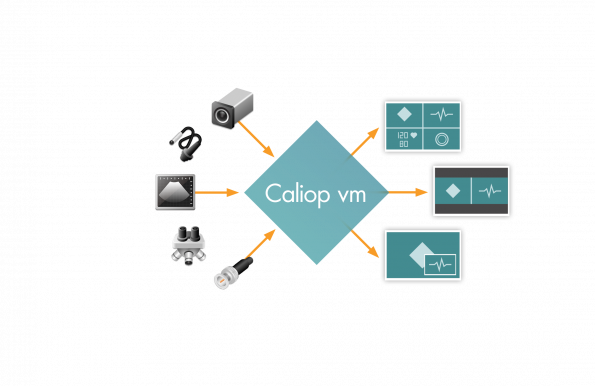
Video Management (Caliop vm)
In addition to the Caliop basic functions, Caliop vm enables video management for the available sources. All image and video sources connected to the EIZO system are displayed in clearly arranged thumbnail images (or optionally with a fixed image). Furthermore, the connected display elements, such as external monitors, and the respectively available layouts are shown. At the click of a mouse or simple touch, a video source can be selected and assigned to the desired monitor or layout. Existing connections are indicated visually. The size of the displayed sources and the targets can be changed using the scaling buttons.
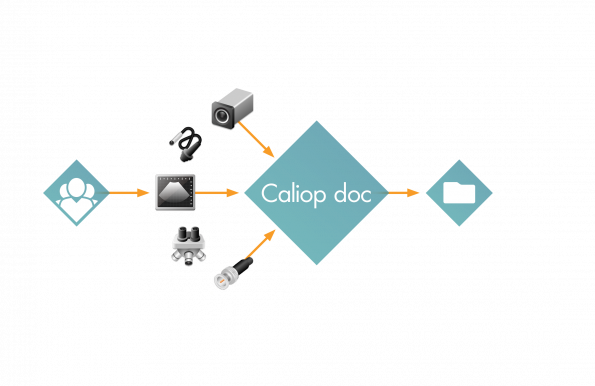
Documentation and Archiving (Caliop doc)
Caliop doc enables all available video sources to be documented and archived. The Patient Management module allows you to manage a list of patients. Patients can be created according to the existing data.
With the Video Management module, the available recording devices are displayed. Buttons can be used to start and stop recording of the assigned video sources.
Additional buttons are used to create snapshots during a recording.
The Archiving module shows all images that have been taken. The view can be individually adapted and filtered. From this list of the images taken, the user can select and display separately the recordings to be archived by mouse click or by touching the screen.
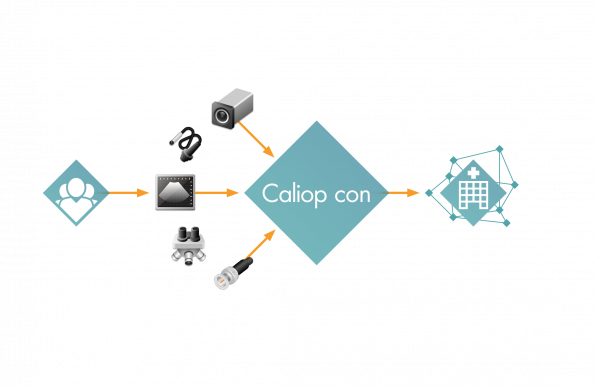
Connection (Caliop con)
Caliop con establishes the software connection to the DICOM worklist and PACS as well as HL7 ADT/ORU. The Connection module enables Caliop doc to be integrated into the hospital information system. Patient data therefore are available in Caliop without media disruption. As such, recorded videos and snapshots can be linked to the patient data of the hospital information system and archived. The connection via DICOM worklist and HL7 ADT/ORU supports the selection of patient data from the hospital‘s IT infrastructure. DICOM storage is used to export images generated during surgery. It is also possible to connect to non-medical archives.
Compatible Products
CuratOR Surgical Panel SP1-324K
- OR Wall Panels
- Nurse Station, Viewing Station
CuratOR Surgical Panel SP1-434K
- OR Wall Panels
- Viewing Station
CuratOR Surgical Panel SP1-494K
- OR Wall Panels
- Viewing Station
CuratOR Surgical Panel SP1-554K
- OR Wall Panels
- Viewing Station
CuratOR Surgical Panel SP1-654K
- OR Wall Panels
- Viewing Station
CuratOR Surgical Panel SP2-24-494K
- OR Wall Panels
- HIS Station
CuratOR Surgical Panel SP2-24-554K
- OR Wall Panels
- HIS Station
- OR Wall Panels
- Nurse Station
CuratOR Surgical Panel SP2-24-24
- OR Wall Panels
- HIS Station
Specifications
Elements (Software Packages) |
|||||||||
|---|---|---|---|---|---|---|---|---|---|
|
|||||||||
Basic Functions |
|||||||||
|
|||||||||
Modules |
|||||||||
|
|||||||||
System Requirements |
|||||||||
|
|||||||||
Μια χειρουργική οθόνη ευρείας θέασης 49 ιντσών με ανάλυση 4K UHD (3840 x 2160 pixels) και υψηλή φωτεινότητα για ενδοσκόπηση, μικροχειρουργική και άλλες επεμβάσεις υψηλής ακρίβειας.
- Ακριβής αναπαραγωγή χρώματος (BT.2020)
- Υποστήριξη HDR
- Απεικόνιση PinP (Picture in Picture) και PbyP (Picture by Picture)
- Αυτόματη ανίχνευση θύρας εισόδου
ΔΙΑΘΕΣΙΜΟΤΗΤΑ:Σε απόθεμα
The DVI transmission links TDL3600 and TDL2300 allow high quality video data to be transmitted between PC and monitor over a distance of up to 36 meters without any loss of quality. This means that image signals can also be routed to ceiling mounted monitors. With conventional connection cables, error-free image transmission is only possible over a maximum distance of 5 meters.
ΔΙΑΘΕΣΙΜΟΤΗΤΑ:Σε απόθεμα
Οθόνη 32 ιντσών με Ανάλυση 4K UHD για Απεικόνιση Μαγνητικού Τομογράφου (MRI)
- Προστασία έναντι των μαγνητικών πεδίων
- Ελαχιστοποίηση των επιπτώσεων στα μαγνητικά πεδία
- Σύστημα σταθεροποίησης φωτεινότητας
- Χρωματική Ακρίβεια
ΔΙΑΘΕΣΙΜΟΤΗΤΑ:Σε απόθεμα
With TIP0410-HDMI, image and video data, as well as control signals, can be transmitted with zero latency or loss in a 10 Gbit network. As a result, a flexible video routing can be realized using standardized, forwardlooking network technology.
- Uncompressed, loss-free data transmission of 10 Gbit/s
- Transmission with zero latency, for better hand-eye coordination
- One device can be used as a decoder and encoder
- Up to two video links per device can be processed
- Multiple views on a monitor possible through one signal
- Passive cooling
ΔΙΑΘΕΣΙΜΟΤΗΤΑ:Σε απόθεμα
The 58 inch viewing area of LS580W enables a new dimension in medical imaging allowing high flexibility in arranging different screen layouts. Important pictures can be scaled to the desired size, less important information can be moved out of the focus. The LS580W supports life time luminance stability. Its tone curves match DICOM/CIE recommendations. The monitor can be mounted to ceiling suspensions and is ideal for operating rooms where multiple medical images need to be displayed simultaneously.
- 58-inch LCD module with 8 megapixel (4K ultra HD) resolution.
- Environmentally-friendly LED backlight offering a maximum brightness of 700 cd/m².
- Redundant components architecture for a high degree of operational reliability.
- Factory-adjusted grayscale tones to meet DICOM Part 14 standard for optimum display of medical DICOM images.
- 5 user-selectable 11-bit look-up tables enable accurate viewing of any type of medical image.
- Homogeneous brightness uniformity across the entire screen.
ΔΙΑΘΕΣΙΜΟΤΗΤΑ:Σε απόθεμα
Μια χειρουργική οθόνη ευρείας θέασης 43 ιντσών με ανάλυση 4K UHD (3840 x 2160 pixels) και υψηλή φωτεινότητα για ενδοσκόπηση, μικροχειρουργική και άλλες επεμβάσεις υψηλής ακρίβειας.
- Ελαφρύ για μετακίνηση διαμέσω τροχήλατου εξοπλισμού
- Ακριβής αναπαραγωγή χρώματος (BT.2020)
- Υποστήριξη HDR
- Απεικόνιση PinP (Picture in Picture) και PbyP (Picture by Picture)
- Αυτόματη ανίχνευση θύρας εισόδου
ΔΙΑΘΕΣΙΜΟΤΗΤΑ:Σε απόθεμα
3D polarizing glasses to view images in 3D on the 3D monitors EX3141-3D, EX3220-3D and EX3242-3D
ΔΙΑΘΕΣΙΜΟΤΗΤΑ:Σε απόθεμα
Μια χειρουργική οθόνη ευρείας θέασης 55 ιντσών με ανάλυση 4K UHD (3840 x 2160 pixels) και υψηλή φωτεινότητα για ενδοσκόπηση, μικροχειρουργική και άλλες επεμβάσεις υψηλής ακρίβειας.
- Ακριβής αναπαραγωγή χρώματος (BT.2020)
- Υποστήριξη HDR
- Απεικόνιση PinP (Picture in Picture) και PbyP (Picture by Picture)
- Αυτόματη ανίχνευση θύρας εισόδου
ΔΙΑΘΕΣΙΜΟΤΗΤΑ:Σε απόθεμα
Πιστή Αναπαράσταση Εικόνων με τη Χειρουργική Οθόνη 3D 31.5 ιντσών
- Οθόνη LCD 31.5 ιντσών με ανάλυση Full HD (1920 x 1080 pixels)
- Ισχυρός οπίσθιος φωτισμός LED με φωτεινότητα 650 cd/m² για βέλτιστη θέαση σε φωτεινά χειρουργεία
- Υψηλή βαθμολογία IP και δίχως ανεμιστήρα, ιδανικό για τη διατήρηση ενός αποστειρωμένου περιβάλλοντος χειρουργείου
- Τεχνολογία optical bonding για μειωμένες ανακλάσεις, υψηλή αντοχή και αντιθαμβωτική τεχνολογία
- Συμπεριλαμβάνονται γυαλιά με επίστρωση anti-fog για ευκρινή και άνετη θέαση εικόνων 3D
- Επίπεδη σχεδίαση με προστατευτικό ύαλο και στρογγυλεμένες γωνίες για άνεση και προστασία της χειρουργικής αίθουσας
ΔΙΑΘΕΣΙΜΟΤΗΤΑ:Σε απόθεμα
The MIR-1 records medical imaging from endoscopy, operating microscopes, or surgical field cameras in high-quality 4K/60p. It can be used to faciliate medical education, training, and research with video recordings of surgical procedures.
- 4K ultra high definition resolution at 60p
- Robust internal high-speed 2TB SSD memory
- H.264 and H.265 video compression
- Intuitive operation thru touch screen and front bottons
ΔΙΑΘΕΣΙΜΟΤΗΤΑ:Σε απόθεμα

